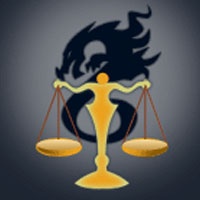Atco RICO Act Lawyer, New Jersey
Sponsored Law Firm
-
 x
x

Click For More Info:
-
Cohen & Bernstein, L.L.C.
1360 Clifton Ave #309 Clifton, NJ 07012» view mapCriminal Defense We’re In this Together!
We work hand in hand with our clients to ensure all of your questions are answered and progress through your legal issue is seamless.
800-978-7341
Not enough matches for Atco RICO Act lawyer.
Below are all Atco Criminal lawyers.
Hercules Pappas
✓ VERIFIEDI started Pappas & Richardson, LLC in 1998 with my good friend, Jay Richardson. We have grown into a very successful law firm and our latest success i... (more)
Peter Alfinito
✓ VERIFIEDA retired police officer, attorney Peter Alfinito has special knowledge and experience with both sides of the law. He is prepared to defend you vigoro... (more)
Jeffrey F Dragon
✓ VERIFIEDJeffry Dragon is a practicing attorney in New Jersey. He attended Rutgers University School of Law where he received his J.D. He currently specializes... (more)
Julius R Hughes
✓ VERIFIEDAfter a career in addictions counseling Mr. Hughes turned his sights on the law. Mr. Hughes began his career handling personal injury claims for inju... (more)
FREE CONSULTATION
CONTACTFREE CONSULTATION
CONTACTFREE CONSULTATION
CONTACTMichael J. Fioretti
FREE CONSULTATION
CONTACT Lindsay Bernstein Clifton, NJ
Lindsay Bernstein Clifton, NJ Practice AreasExpertise
Practice AreasExpertise




